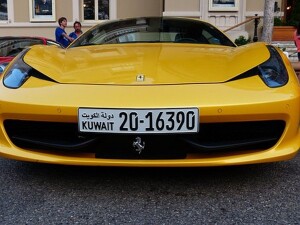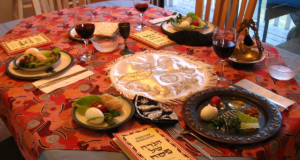The tension between ancient and modern exists throughout the developing world.
 Doha, January 5 – The recent World Cup contests and festivities in Qatar highlighted a salient long-term issue for the dictatorships and monarchies in the region, observers note, where the tension between old and new features at the fore of social, financial, political, and other issues, with specific prominence for the often-competing but sometimes-complementary models of generating revenue from fossil fuels using the most modern technology and the exploitation of tens of thousands of migrant “workers” to perform menial, hazardous tasks.
Doha, January 5 – The recent World Cup contests and festivities in Qatar highlighted a salient long-term issue for the dictatorships and monarchies in the region, observers note, where the tension between old and new features at the fore of social, financial, political, and other issues, with specific prominence for the often-competing but sometimes-complementary models of generating revenue from fossil fuels using the most modern technology and the exploitation of tens of thousands of migrant “workers” to perform menial, hazardous tasks.
Investors, government officials, businessmen, and tourists highlight the burgeoning economies of Qatar, Bahrain, Kuwait, the United Arab Emirates, Oman, and other Arab states, pointing to the advanced high-rise construction; their citizens’ high per-capita income; the availability of luxury goods of every kind; and high return on equity in local petroleum-based enterprises. At the same time, the government and diplomatic corps of those nations wield rose-colored propaganda to induce and entice myriad foreigners, mostly from underdeveloped countries, to earn a living in the region, and when those foreigners arrive, local “entrepreneurs” confiscate their passports, enslave them, mistreat them, and force them to engage in dangerous jobs in the construction and infrastructure industries.
The tension between ancient and modern exists throughout the developing world, where archaeology and venerable sites or cultural phenomena vie for resources and priority with the existential need to generate revenue and develop the economy. The exigencies of rule of law and property rights often conflict with nomadic lifestyles of certain tribes with little notion of private real estate, from Israel to Dakota to Australia to Chad. Few countries have managed to synthesize the old and the new in a way that satisfies advocates for either set of resources. The Persian Gulf countries, however, continue to attempt the feat, and government figures from throughout the region noted some of the successes in that regard.
“The modern Arabic world for ‘Black man’ – an African – is some variation of ‘abed, meaning ‘slave’ – so that should give you an idea of which traditions get preserved and maintained, and which ones are candidates for modernization,” explained Qatar Minister for Economic Affairs Prince Abdel Rahman.
“The synthesis of ancient and modern is an ongoing negotiation, a process,” remarked Saudi commentator Quntaq Inte. “Some countries do it better than others. Iran and Saudi Arabia, for example, are involved in helping Yemen come down firmly on the side of prioritizing the old – not by preserving it, as one might think, but, counterintuitively, by destroying everything else.”
Please support our work through Patreon.




